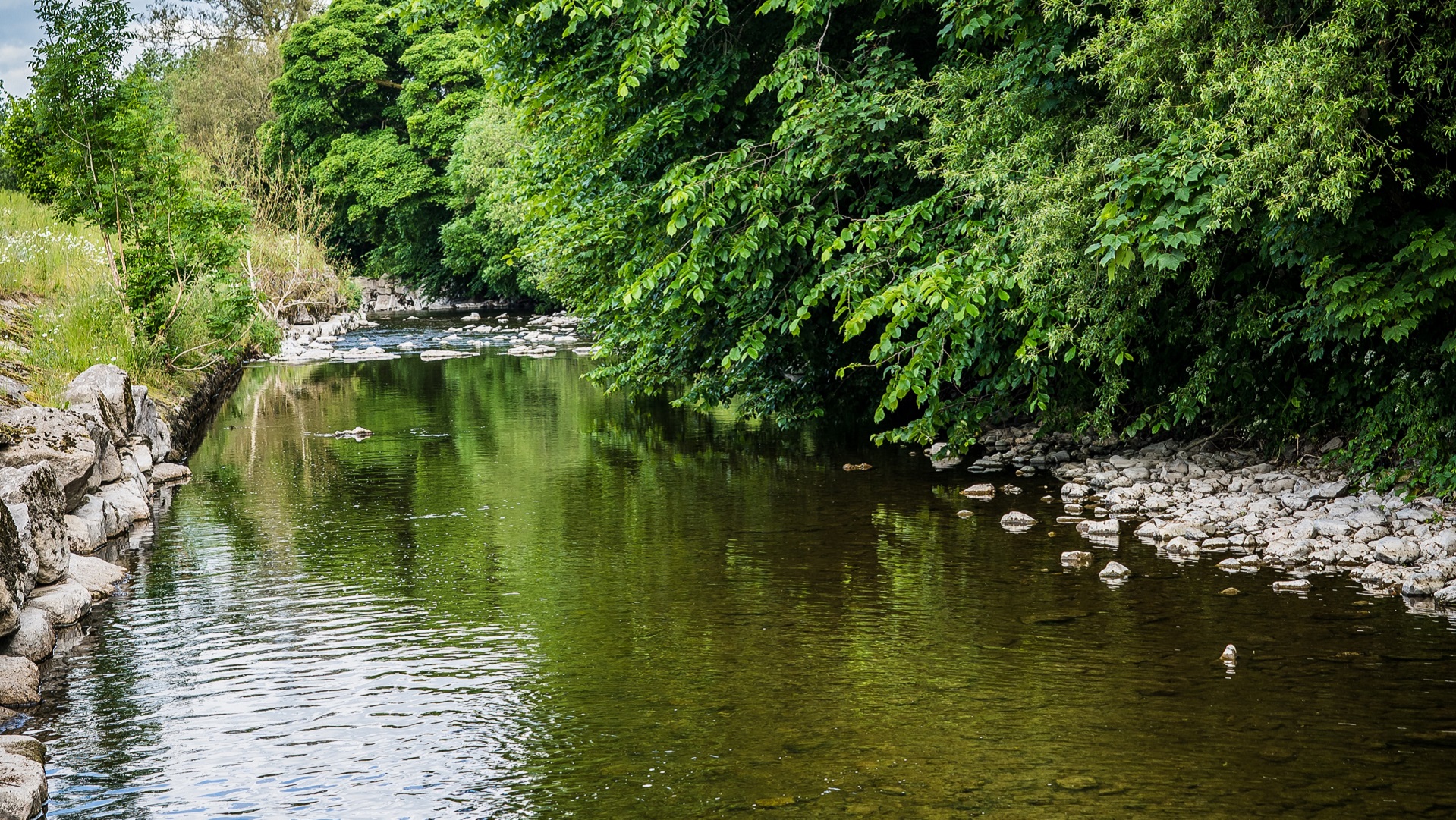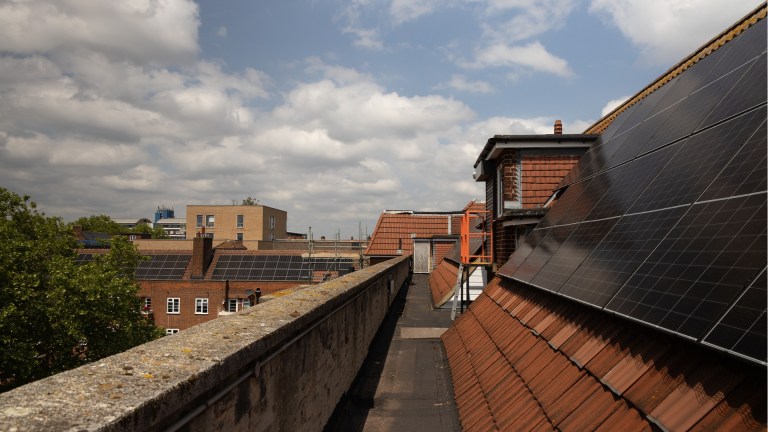Former Undertones singer turned green activist Feargal Sharkey said: “Greenest government ever? Lie. Not lowering environmental standards? Lie. Leave rivers in a better state? Lie. All of it, lies.”
The RSPB posted an image of Gove, Prime Minister Rishi Sunak and Coffey with the word “Liars!” written across them. The RSPB later apologised and said in a statement: “We are in a nature and climate emergency and that demands urgent action. The RSPB is deeply frustrated by the government’s reneging on its environmental promises. But that frustration led us to attack the people, not the policy.”
What is nutrient neutrality?
Nutrient neutrality regulations prevent additional pollution in rivers. The habitat regulations ensure a development plan or project does not lead to a net increase to the existing nutrients – nitrogen and phosphate pollution – in nearby waterways.
In practice, this impacts what can be built near water bodies. Agricultural activity can affect the amount of nutrients in water if fertilisers, animal waste or slurry is flowing into rivers.
Building houses and other buildings can have an effect too. Untreated or partially treated sewage may be more likely to enter rivers above levels allowed under water companies’ permits due to development near waterways. Wastewater from development can also make its way into rivers and increase the nutrient count.
For homes to be greenlit, developers must demonstrate they will not add to pollution, either by incorporating mitigation into designs through sustainable drainage or offsetting the issue with pollution reduction efforts in the local area.
Advertising helps fund Big Issue’s mission to end poverty
Natural England already operates a nutrient mitigation scheme to offset the impacts on rivers. The government announced it would be doubling the investment into this scheme to £280m after admitting there will be a “very small amount of additional nutrient discharge” linked to plans to build 100,000 homes between now and 2030.
What do housing developers say?
Housing developers have, unsurprisingly, welcomed the move.
The Home Builders Federation (HBF) has been campaigning for the rules to be relaxed for four years, arguing that it is blocking homes from being built.
Since June 2019, Natural England has issued advice to 74 local planning authorities blocking planning permission to build new homes unless nutrient neutrality could be achieved. The HBF estimates that more than 145,000 new homes have been blocked as a result, exacerbating the housing crisis even further.
They also point the finger at water companies’ controversial sewage discharges as a bigger polluter than developers, citing government research. The HBF estimates that all residential development accounts for “5% of the nutrient issue”.
Your support changes lives. Find out how you can help us help more people by signing up for a subscription
Advertising helps fund Big Issue’s mission to end poverty
Stewart Baseley, HBF executive chairman, said: “New homes are a negligible contribution to the river pollution issue that is a result of agricultural practices and water company failings.
“House builders are keen to play a part in protecting rivers but the ban is not solving the issue, it’s exacerbating another national crisis, our shortage of homes. Further delays to providing a solution will reduce access to decent housing for even more people, cost jobs and threaten local businesses.”
The Conservatives made a 2019 manifesto promise to build 300,000 new homes a year but have struggled to hit that mark while in power and have moved away from top-down targets in the last year. Homebuilders insist relaxing nutrient neutrality laws will deliver much-needed new homes.
Why are the RSPB and other environmental campaigners angry?
Many green groups have been seeing red over the issue. The RSPB weren’t the only ones who accused the government of breaking promises on environmental standards.
Wildlife and Countryside Link chief executive Dr Richard Benwell said the move was “possibly the biggest weakening in environmental law for decades”.
He told The Big Issue: “It’s an attack on the most important environmental protection laws that we have in the UK.
Advertising helps fund Big Issue’s mission to end poverty
“These laws have been shown time and again by great science to be effective and proportionate, and the best way to look after fragile ecosystems and vulnerable wildlife.
“Rivers are very much in the public mind at the moment and these laws are particularly about looking after our most sensitive rivers. The ones that we know are choked with pollution, like the Wye and the coastal areas around the Solent, but it’s also the wider ecosystems that depend on those habitats.”
Benwell insisted that the nutrient neutrality laws do not prevent house building but he also played down the narrative that it was a case of “builders v blockers”.
He called for the government to withdraw its plans to scrap the laws or for parliamentarians to vote against it when it goes in front of peers in the House of Lords later this month.
Get the latest news and insight into how the Big Issue magazine is made by signing up for the Inside Big Issue newsletter
“It’s worth pointing out that housing developers are very, very happy to sit on large land banks and hundreds of thousands of planning permissions, which they’ve been holding and waiting for the most profitable moment for many years,” said Benwell.
Advertising helps fund Big Issue’s mission to end poverty
“So when it suits housing developers, they’re not in a rush to build homes and the suggestion that it’s environmental laws that are causing a shortage of supply in housing, particularly affordable housing is completely wrong.
“The way it’s been presented is that these laws present a block on development, that’s absolutely not the case. It is possible to build within areas covered by nutrient neutrality, as long as the polluter pays for the additional harm they caused the environment and that just seems the fair way to do things.
“What the government is proposing is instead to strip away the law, so that the cost of that environmental harm is then paid for by the public or falls on the environment.”
Do you have a story to tell or opinions to share about this? We want to hear from you. Get in touch and tell us more.










